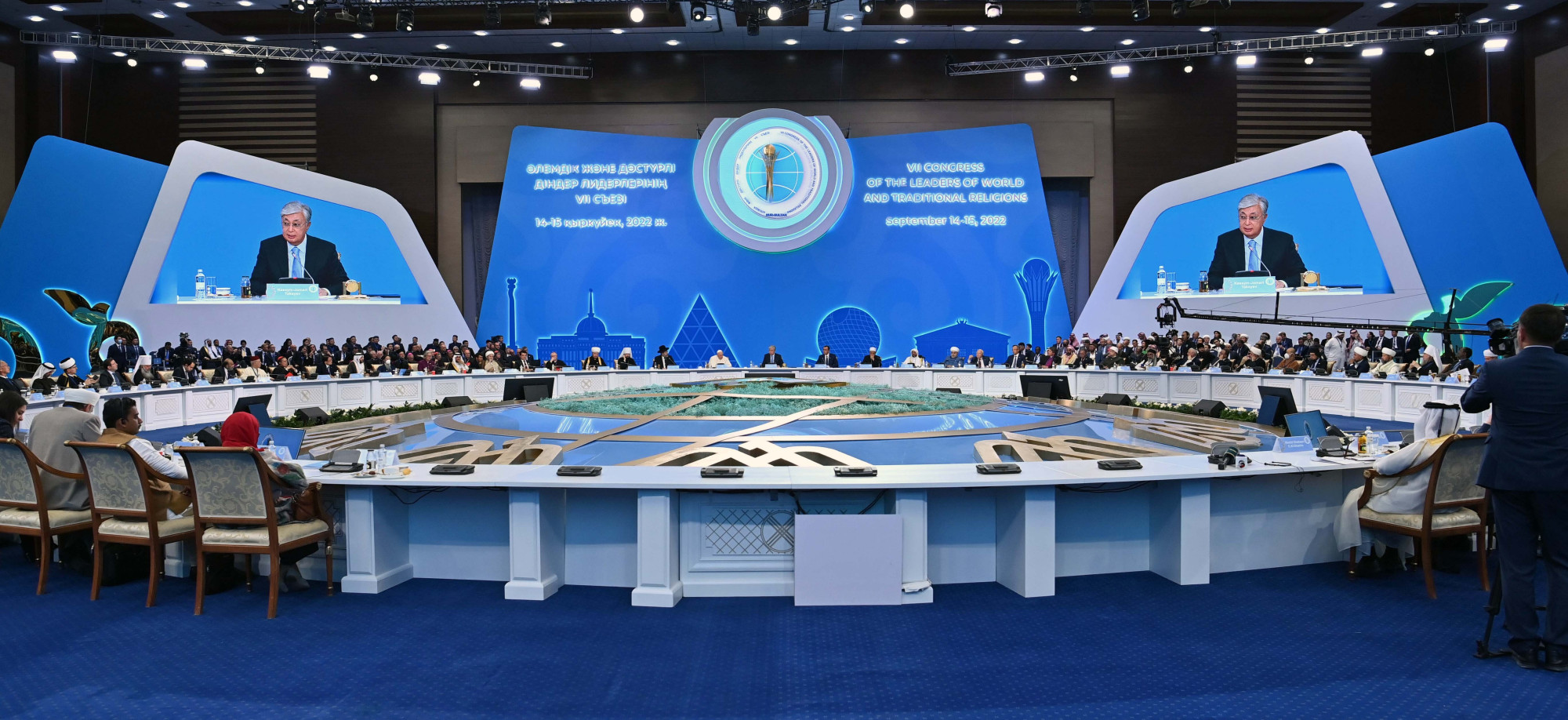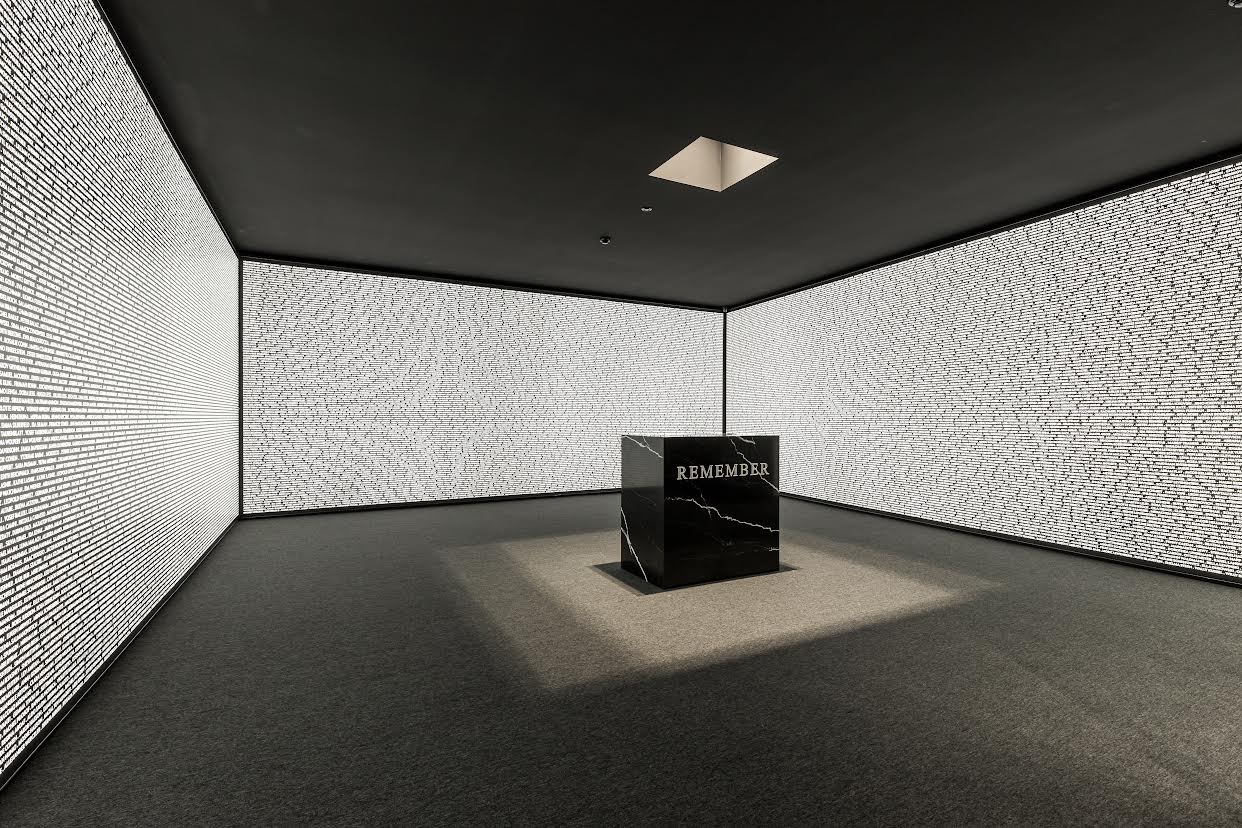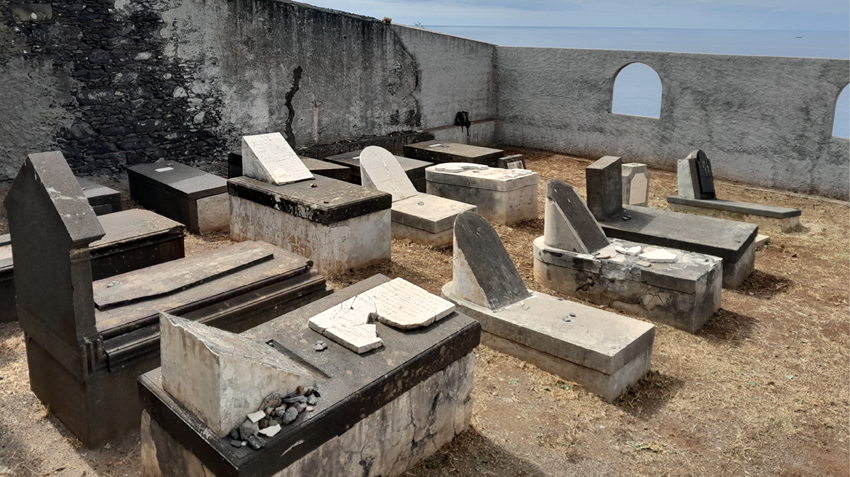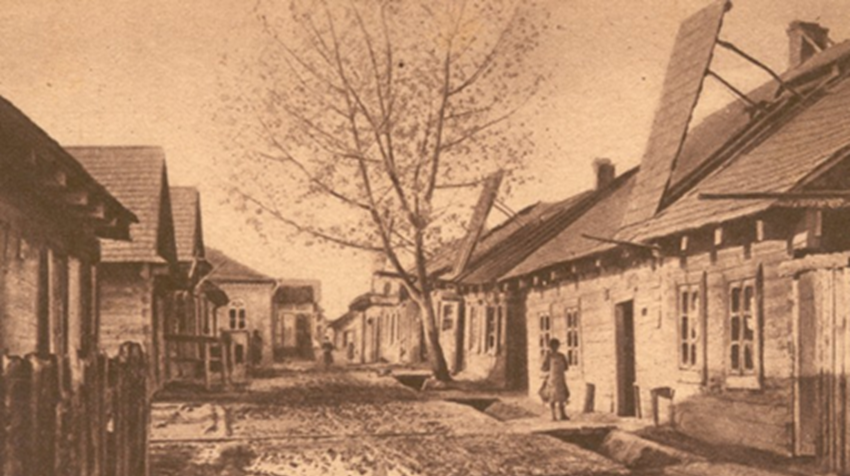Yitzhak Yosef and David Lau, the Chief-Rabbis of Israel, were attending. Credit: Religions Congress
We, the participants of the VII Congress - spiritual leaders of world and traditional religions, politicians, heads of international organizations,
guided by our shared desire for a just, peaceful, secure and prosperous world,
affirming the importance of shared values in the spiritual and social development of humankind,
recognizing the necessity of countering and overcoming intolerance and hate speech, xenophobia, discrimination and conflicts based on ethnic, religious and cultural differences,
respecting the richness of religious and cultural diversity,
realizing that acts of charity, compassion, mercy, justice and solidarity contribute to the rapprochement of peoples and societies,
recognizing the value of education and spirituality for personal and interreligious development
affirming the importance of the role and rights of women in society,
stating that material inequality leads to discontent, social tension, conflict and crisis in our world,
recognizing the importance of addressing global challenges in our post-pandemic world, including climate change, poverty and hunger; organized crime, terrorism, and drugs,
condemning in the strongest terms the extremism, radicalism and terrorism which lead to religious persecution and the undermining of human life and dignity,
condemning the creation of hotspots of interstate and international tension in the world,
expressing serious concern about the global increase in the number of migrants and refugees in need of humanitarian assistance and protection,
expressing a firm desire to contribute to the creation of conditions for dialogue and reconciliation between conflicting parties,
realizing the urgent necessity for spiritual and political leaders to work together in addressing the challenges of our world,
welcoming all international, regional, national and local initiatives, especially the efforts of religious leaders to promote interreligious, intercultural and intercivilizational dialogue,
expressing the intention to intensify cooperation between religious communities, international, national and public institutions, and non-governmental organizations in the post-pandemic period,
reaffirming the work of the Congress of the Leaders of World and Traditional Religions as an international interreligious dialogue platform for representatives of many religions, confessions and creeds,
pointing out the opportunity of the Congress of the Leaders of World and Traditional Religions for taking further specific steps to expand interreligious intercultural and intercivilizational dialogue,
HAVE COME TO A COMMON POSITION AND DECLARE THE FOLLOWING:
- We will make every effort to ensure that the Congress of the Leaders of World and Traditional Religions continues its regular activities for the benefit of peace and dialogue between religions, cultures and civilizations.
- We declare that in the conditions of post-pandemic world development and the globalization of processes and security threats, the Congress of the Leaders of World and Traditional Religions plays an important role in the implementation of joint efforts to strengthen dialogue in the name of peace and cooperation, as well as the promotion of spiritual and moral values.
- We recognize that the negative consequences of pandemic disease can be overcome only through joint effort, working together and helping each other.
- We are convinced that the unleashing of any military conflict, creating hotspots of tension and confrontation, causes chain reactions which impair international relations.
- We believe that extremism, radicalism, terrorism and all other forms of violence and wars, whatever their motivations and goals, have nothing to do with authentic religion and must be rejected in the strongest possible terms.
- We strongly urge national governments and authorized international organizations to provide comprehensive assistance to all religious groups and ethnic communities that have been subjected to infringement of rights and violence by extremists and terrorists and as a result of wars and military conflicts.
- We call upon world leaders to abandon all aggressive and destructive rhetoric which leads to destabilization of the world, and to cease from conflict and bloodshed in all corners of our world.
- We call upon religious leaders and prominent political figures from different parts of the world tirelessly to develop dialogue in the name of friendship, solidarity and peaceful coexistence.
- We advocate the active involvement of the leaders of world and traditional religions and prominent political figures in the process of conflict resolution for achieving long-term stability.
- We note that pluralism in terms of differences in skin color, gender, race, language and culture are expressions of the wisdom of God in creation. Religious diversity is permitted by God and, therefore, any coercion to a particular religion and religious doctrine is unacceptable.
- We call for the support of practical initiatives to implement interreligious and interdenominational dialogue, for the sake of building social justice and solidarity for all peoples.
- We stand in solidarity with the efforts of the United Nations and all other international, governmental and regional institutions and organizations, promoting dialogue among civilizations and religions, states and nations.
- We recognize the importance and value of the Document on Human Fraternity for World Peace and Living Together between the Holy See and Al-Azhar Al-Sharif (adopted by the UN General Assembly in resolution A/RES/75/200 of December 21, 2020), and the Makkah Declaration (adopted in Mecca in May 2019), which call for peace, dialogue, mutual understanding and mutual respect among believers for the common good.
- We welcome the progress made by the global community in the fields of science, technology, medicine, industry and other areas yet note the importance of their harmonization with spiritual, social and human values.
- We realize that social problems often push people to extreme attitudes and actions and call on all states of the world to ensure adequate living conditions for their citizens.
- We note how people and societies which dismiss the importance of spiritual values and moral guidelines are susceptible to lose their humanity and creativity.
- We call on world political and business leaders to focus on overcoming the imbalances in the development of modern societies and to reduce the gap in the well-being of different segments of the population and different countries of the world.
- We note the positive impact of dialogue between leaders of world and traditional religions for socio-political processes in states and societies, contributing to the preservation of peace.
- We proceed from the immutable fact that the Almighty created all people equal, regardless of their racial, religious, ethnic or other affiliation or social status, therefore respect for each other and mutual understanding underpin all religious teaching.
- We call on political and public figures, journalists and bloggers, while recognizing their freedom of speech, to beware religious generalization and not to identify extremism and terrorism with any nation or religion, as well as not to use religions for political purposes.
- We advocate increasing the role of education and religious formation, particularly among youth, in strengthening the respectful coexistence of religions and cultures and debunking dangerous pseudo-religious prejudices.
- We pay special attention to the importance of strengthening the institution of the family.
- We stand for the protection of the dignity and rights of women, the improvement of their social status as equal members in family and society, as well as encourage their inclusion in the peace processes in cultural and religious settings.
- We note the inevitability of global digital development, as well as the importance of the role of religious and spiritual leaders in interacting with politicians in solving the problems of digital inequality.
- While we respect the freedom of expression, we strive to develop a dialogue with the media and other institutions of society to clarify the significance of religious values for promoting religious knowledge, interreligious harmony and civil peace, as well as to develop general tolerance towards religions.
- We appeal to all people of faith and goodwill to unite in this difficult time and contribute to ensuring security and harmony in our common home – planet Earth.
- We turn to pray in support of all people of goodwill on the planet who make a significant contribution to the expansion of inter-civilizational, interreligious and international dialogue for the sake of a more prosperous world.
- We call for supporting acts of mercy and compassion in regions affected by military conflict, and by both natural and man-made disasters.
- We call for solidarity in the support of international organizations and national governments in their efforts to overcome the consequences of the Covid pandemic.
- We affirm that the purposes of the Congress and this Declaration is to guide contemporary and future generations of humankind in promoting a culture of mutual respect and peacefulness; available for use in public administration of any country in the world, as well as by international organizations, including UN institutions.
- We instruct the Secretariat of the Congress to develop a Concept for the development of the Congress of the Leaders of World and Traditional Religions as a global interreligious dialogue platform for 2023-2033.
- We affirm the role of the Republic of Kazakhstan as an authoritative and global center of intercivilizational, interreligious and interfaith dialogue.
- We thank the Republic of Kazakhstan and President Kassym-Jomart Tokayev for convening the VII Congress of the Leaders of World and Traditional Religions, for their humanitarian initiatives, and for their contribution to renewal and progress, peace and harmony.
- We thank the Republic of Kazakhstan for the excellent organization of the Congress, and to the Kazakh people for their cordiality and hospitality.
- We confirm our collective interest in continuing the activities of the Congress of the Leaders of World and Traditional Religions and our intention to convene the next VIII Congress in 2025 in the capital of the Republic of Kazakhstan, Nur-Sultan.
* * *
This Declaration was adopted by the majority of delegates of the VII Congress of the Leaders of World and Traditional Religions and is being transmitted to the authorities, political leaders and religious figures around the world, relevant regional and international organizations, civil society organizations, religious associations and leading experts. It will also be distributed as an official document of the 77th session of the UN General Assembly.
The principles contained in the current Declaration can be disseminated at all regional and international levels, for consideration in all political decisions, legislative norms, educational programs, and mass media in all interested countries.
MAY OUR ASPIRATIONS BE BLESSED
AND MAY PEACE AND PROSPERITY
BE GRANTED TO ALL PEOPLES AND COUNTRIES!
THE REPUBLIC OF KAZAKHSTAN
NUR-SULTAN
SEPTEMBER 15, 2022
Source: ReligionsCongress.org


































